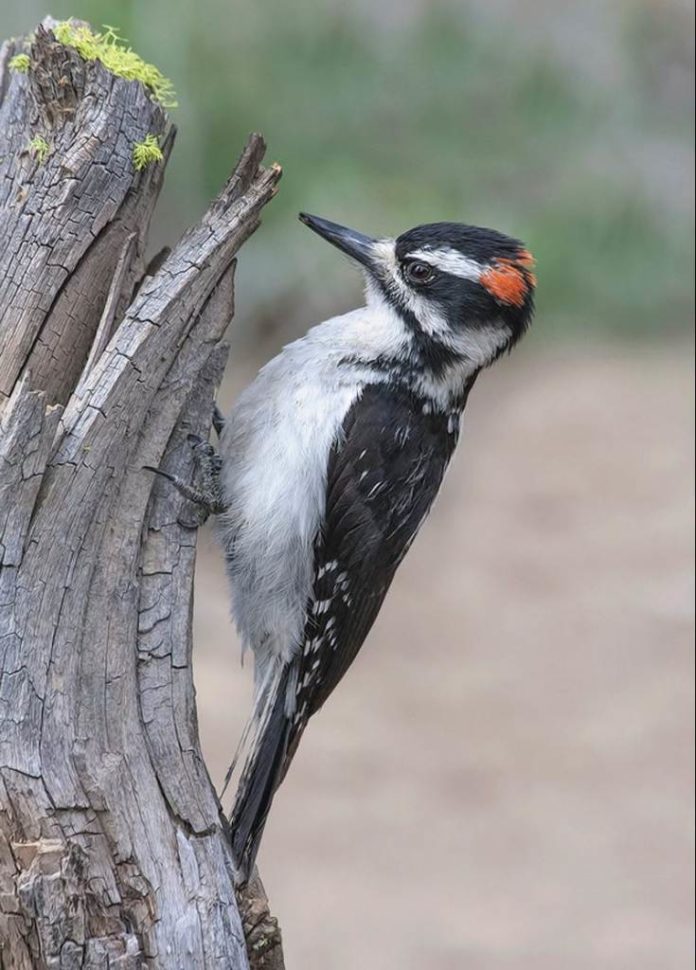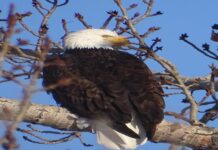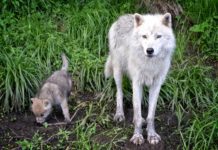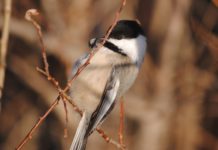The Hairy Woodpecker (Picoides villous) is a year-round resident in Calgary. It is a medium sized woodpecker, with a very straight-backed posture suitable for clinging to tree trunks. The Hairy Woodpecker has a striped head, long straight bill for excavating holes in trees, and stiff long tail feathers for leaning against tree trunks.
Although they are still very widespread, they have declined in numbers in many areas. Loss of nesting sites is one problem
The Hairy Woodpecker is black and white: locally its wings are black checkered with white, it has a large white patch down the centre of it’s black back and two white stripes on its head (with the male having a red patch at the back of its head). These birds can be found in mature forests, treed suburban areas and parks, orchards, both coniferous and deciduous forests, and small woodlots all over Canada and the United States.
Fun Facts:
- The Hairy Woodpecker can be found from sea-level to high mountainous zones, but have somewhat different looks in different regions.
- They are frequently found alongside the smaller Downy Woodpecker.
- They will follow behind the Pileated Woodpecker, cleaning out their holes of any food left behind by the larger bird.
- They sometimes drink the sap leaking from holes made by Sapsuckers (locally the Yellow-Bellied Sapsucker).
- Hairy Woodpeckers peck out a cavity nest hole in the dead stub of a living tree (especially if it has “heartrot”) or in dead trees.
- They are great helpers in the battle against bugs that harm trees, as more than 75% of their diet is made up of insects, especially wood-boring beetles, bark beetles, ants and moth pupae in their cocoons. Bark beetles are especially destructive to large stands of trees as extensive infestations can number in the billions and destroy the trees. In orchards, Hairy Woodpeckers help control outbreaks of moths. In burned out trees, wood-boring beetles often are found in large numbers, making for great feeding and nesting space for Hairy Woodpeckers.
- Hairy Woodpeckers are common visitors at backyard feeders, eating suet and sunflower seeds.
- Although they are still very widespread, they have declined in numbers in many areas. Loss of nesting sites is one problem.
If you find an injured or orphaned wild bird or animal in distress, please call the Calgary Wildlife Rehabilitation Society hotline at 403-239-2488 for tips, instructions and advice, or look at the website at www.calgarywildlife.org for more information.










